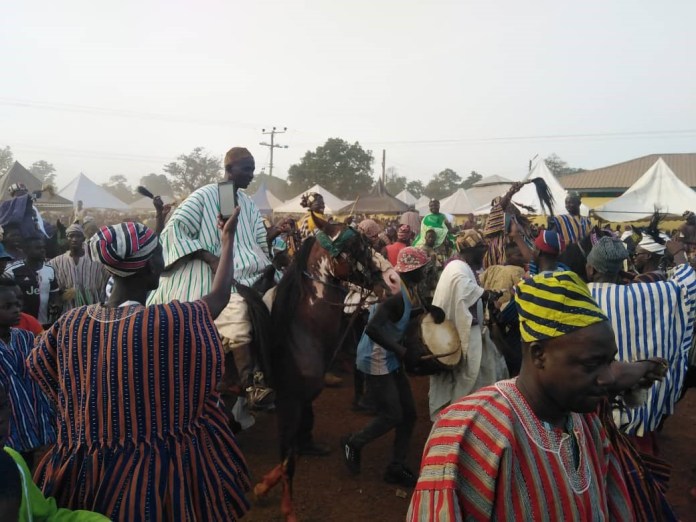Overlord of Dagbon, Yana Naa Abukari II has called for unity among the chiefs, youth and residents of Dagbon to ensure sustained peaceful co-existence in Dagbon for the sake economic development.
According to him, potential investors a keenly monitoring developments in the region to see if the recent successes can be maintained and the residents must work assiduously to ensure Dagbon is a conducive environment for investors.


Offering a goodwill message at this year’s Damaba festival, he said: “Peace is very expensive and without it, it would be difficult to being about development that would create jobs for the youths and the indigenes to alleviate poverty. Let consolidate and sustain the peace to make sure what is expected of Dagbon will definitely come to Dagbon.”
Palace Public Relations officer (PRO) to the Yana, Yakubu Musah Gbewaa who relayed this in an interview with the B&FT said the lack of peace for almost two decades in Dagbon has affected development, employment and other activities.
He noted that the celebration of the festival where the cultural heritage of the kingdom is put on display could serve as a means to drawing investments to Dagbon.
Damba Festival
A visit to the Dakpema and Gulkpe Naa palaces saw the chiefs and residents gathered to celebrate the event with indigenes clad in their cultural outfits and musketry being fired.
Some residents who spoke with the B&FT expressed gratitude to the traditional leaders of Dagbon for ensuring peace that is being enjoyed and called for more developmental projects to help the youths get jobs.


This year’s festival which was celebrated under the theme ‘consolidating the peace in Dagbon’ saw a delegation from Otumfuo Osei Tutu II. The Damba festival is celebrated by the chiefs and peoples of the Northern, Savannah, North East and Upper West Regions of Ghana. It is celebrated in the Dagomba lunar month of Damba, corresponding with the third month of the Islamic calendar, Rabia al-Awwal.
Damba is celebrated to mark the birth and naming of the Holy prophet, Muhammad, but the actual content of the celebration is a glorification of the chieftaincy, not specific Islamic motifs. The festival is categorized into three sessions; the Somo Damba, the Naa Damba and the Belkulsi.











